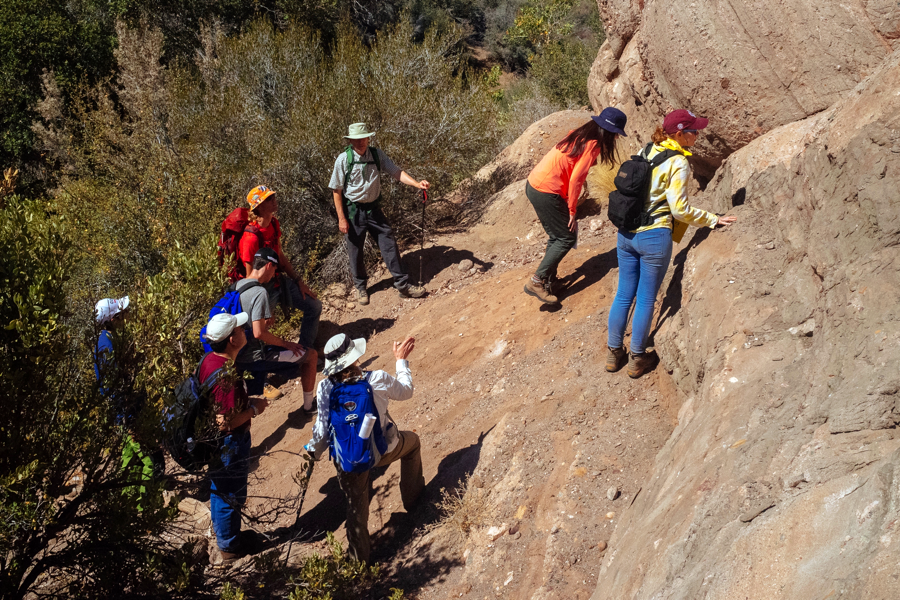All Categories
Featured
Table of Contents
Geophysicists: Salary, Career Path, Job Outlook, Education ... in Caversham Aus 2020

Other possible geophysicist majors that aren't geophysics or geoscience consist of: Atmospheric sciences and meteorology Chemical and physical oceanography Earth science Environmental science Hydrology and water resources science Materials science By earning any geophysicist degree, and by taking the necessary geology courses, you should qualify for an entry-level position as a geoscientist or geophysicist.
Eventually, trainees should discover: a branch of geology that takes a look at the different elements of minerals, including chemical composition, internal crystal structure, and physical residential or commercial properties. the study of rocks and the procedures and conditions that form and transform them gradually. There are a few subdivisions in this branch of geology, consisting of igneous, metamorphic, and sedimentary rocks.

This field analyzes structural rock functions such as cleavage, faults, joints, and small folds. They should likewise find out the computer system skills essential to: analyze information produce digital designs and maps operate geoscientists' software Students ought to also take benefit of all chances to gain real-world experience. Hopeful geophysicists should anticipate to hang out learning: in the class in the field in laboratories Obviously, abilities taught in the classroom are extremely important for aspiring geophysicists.
Why Study Geophysics? in Koongamia Aus 2021
Geoscientists invest a lot of their time outside when working in the field, so they need to have "outdoor abilities" like camping and running boats, airplane, and other cars. Since they invest so much time in remote areas, it's vital that geophysicists also have the physical stamina to bring essential devices on their walkings to places of study.
The job offers: a high mean and top incomes a high rate of individual complete satisfaction among geophysicists low work stress positive task outlook Further info on earnings potential and job outlook is detailed below. For trainees looking to land an entry-level role as a geoscientist or geophysicist, it takes four years, or the time required to complete a bachelor's degree in geophysics or an associated discipline.
Some research study positions in geophysics need doctoral degrees. Likewise, if you plan to teach at a college or university, you must earn a Ph - Geophysical Survey - Salisbury Archaeology in Noranda Oz 2020. D. in geophysics or a related field. The time it takes to earn a Ph. D. varies by organization and program, however it normally takes four to six years beyond the bachelor's degree.
Geophysical Surveys: Definition & Methods in Safety Bay Aus 2020
The majority of employers require candidates to have a bachelor's degree in geophysics or a carefully associated discipline for all entry-level positions. And, sometimes, employers need a master's degree. As a result, there's no chance around the degree requirements for ending up being a geophysicist. The majority of companies will expect or require a practicing geologist to be accredited for positions beyond those at the entry level.
Currently, 31 states require licensing for geologists, although licensing is not constantly required, particularly for entry-level work. The states that do concern licenses use the Basics of Geology Examination (FGE), which is administered through the National Association of State Boards of Geology (ASBOG). Now that you understand which degree for geophysicist tasks you need, you'll need to land a task, and it is very important to learn just how much cash you can make in this profession.
According to BLS, the median annual wage for geoscientists is $93,580. According to BLS, specific industries use greater wages for geoscientists, and in some cases, they use higher-than-average revenues.
What Does A Geophysicist Do? in Woodvale Oz 2020
Mining, quarrying, and oil and gas extraction uses over $32,000 more each year than the average annual wage for this profession. The federal government, too, offers over $10,000 more in profits than the national average for geoscientists. In addition to market type, geographical place can considerably impact revenues for this occupation.

The top-paying states and their annual mean earnings, according to the BLS, consist of: Texas $166,720 Oklahoma $149,630 Pennsylvania $120,590 Hawaii $120,130 Colorado $107,260 These 5 top-paying states offer much greater incomes than the average for this occupation. In reality, incomes for geoscientists in Texas are over $73,000 higher than the national average.
It ought to come as not a surprise that the majority of these high-paying areas are in Texas and Oklahoma, however some are discovered in California, Louisiana, and Colorado. The leading 10 highest-paying metro areas for geoscientists are: Houston-The Woodlands-Sugar Land, Texas: $188,400 Tulsa, Oklahoma: $186,490 Midland, Texas: $167,040 Odessa, Texas: $147,080 Oklahoma City, Oklahoma: $145,350 Bakersfield, California: $130,080 Urban Honolulu, Hawaii: $124,470 New Orleans-Metairie, Louisiana: $121,030 Washington-Arlington-Alexandria, DC, VA, MD, WV: $120,180 Denver-Aurora-Lakewood, Colorado: $116,910 For some geoscientists and geophysicists, living in a metro city is not as attractive as living in a smaller sized neighborhood.
Table of Contents
Latest Posts
Geophysical Survey In Archaeology in Samson WA 2023
Geology Careers: Degree Requirements, Cost & Salary in Subiaco Western Australia 2022
Geophysical Surveys: Definition & Methods in Armadale Western Australia 2022
More
Latest Posts
Geophysical Survey In Archaeology in Samson WA 2023
Geology Careers: Degree Requirements, Cost & Salary in Subiaco Western Australia 2022
Geophysical Surveys: Definition & Methods in Armadale Western Australia 2022